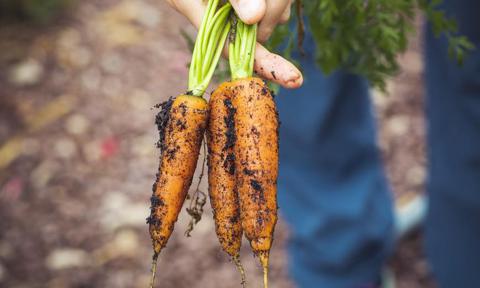
“It’s not just eating a bowl of salad,” exclaims Chef Vanika Choudhary, when I ask her about clean eating. To be fair, that’s what I had assumed before Choudhary read my mind and cleared my misconception.
Clean eating is not a new concept. Choudhary, herself, claims that it is something she has been practicing since her childhood. It’s just that it didn’t have a trendy name back then. “It’s how I grew up and what I absorbed from my mother and nani,” she says, “Clean eating is not only about eating salads or not eating as per your heritage, or giving up carbs. It’s a holistic approach to nutrition.”
In its essence, clean eating requires you to eat foods that are as close to their natural form as possible, with minimal processing. “You have to be mindful of where you source your ingredients from,” she explains, “Follow the principles of eating local and seasonal produce, and buy organic food as much as possible.”
Choudhary is the brains behind one of Mumbai’s most popular organic restaurants Sequel, and the newly launched Noon, another exploration of organic food using indigenous produce from across the country. With her restaurants, Choudhary seeks to inform people that clean eating doesn’t have to be bland and boring. “The most important and underlying principle of clean eating is that it has to be flavorful and delicious. It shouldn’t taste like cardboard,” she says.
But with our busy lives, where cooking a meal for yourself at the end of a working day seems like a mammoth task, taking on clean eating doesn’t seem sustainable. Choudhary makes a noise of assent when I voice this out loud. “It’s about making time and setting priorities right,” she says, “You can set out a time to stock up your fridge and plan your meals based on it. You can prepare a whole lot of condiments and ready-to-eat foodstuff in advance and plan your meals through the week. For instance, it doesn’t take long to cook rice or roast vegetables and if you already have a jar of pesto ready in your fridge, you can toss it up together to have a simple and delicious meal.”
The movement had come under fire for being unhealthy and impractical, but Choudhary argues that the core philosophy of clean eating is based on intuitive eating. “One size doesn’t fit all. What may fit you, might not fit someone else.”
She insists that one must not view clean eating as a fad, but treat it as a lifestyle option. “It starts with the whole approach of being mindful of what you’re eating,” she says, “What may fit you, might not fit someone else and same goes the other way around.” According to her, it’s important to understand what works for you and your body when it comes to eating clean. “You can start with a food journal and try to understand what works for your body in what way. How do you feel after eating different kind of foods, or each meal. You will know what’s working for you and what’s not working for you. It’s about having a diverse diet. This has to be a lifestyle, it can’t be a passing trend that you follow.”
The concept of clean eating, she insists once again, is very simple. “It’s about returning to our roots. “The reason why we go through a lot of these gut issues and why our ancestors didn’t have them is because we’ve forgotten the whole concept of a varied diet. Our ancestors’ diets included a whole bunch of foraged ingredients.”
While the benefits are sound and the theory holds merit, organic food and produce is not easily accessible to most people. “I always ate like this while growing up because the produce available was always organic,” she says, “You dont have to go for expensive food options. Vegetables that are easily available around you, like bhindi, methi etc, are also viable options to include in your diet while practicing clean eating.” But does that mean you’d have to give up on non-vegetarian food? Choudhary immediately disagrees, “You can eat it if it agrees with your body and if you’re mindful of where it has been sourced from. But you have to make sure you’re balancing it with plenty of vegetables. Historically speaking, meat was always consumed as a condiment along with vegetables and other things.”
With the pandemic, more and more people are becoming mindful of their lifestyle choices, especially when it comes to food. “After people have had time to reflect on what they’ve been eating, they’ve tried to be more conscious of their diet and food habits,” she says, on the increasing interest towards clean eating as a practice.
As Choudhary says, you know your body the best. If you’re starting on your clean eating journey, start with small steps and listen to your body. It’s also never a bad option to see a professional if you have any doubts or concerns.






